This is the question asked by us at the European Wergeland Centre to students from 25 schools in Norway, Poland and Ukraine. 185 students used their creativity in Minecraft where they could build their ideal society.
Even more joined from other schools through local game sessions in Minecraft Education. A team of 11 people, mainly teenagers from the association Spillkultur, were gathered at Spillhuset Bergen to make sure that things went well.
Gradually, over a hundred buildings sprang up in three beautiful cities – where you could glimpse some differences between the countries.
In Norway, skyscrapers sprang up before the students went to the mountains to build cozy skiing cabins. Poland erected many beautiful churches, parks and a court of law, while Ukraine focused more on schools, hospitals, power plants and making sure the surroundings and urban spaces were beautiful to the eye.
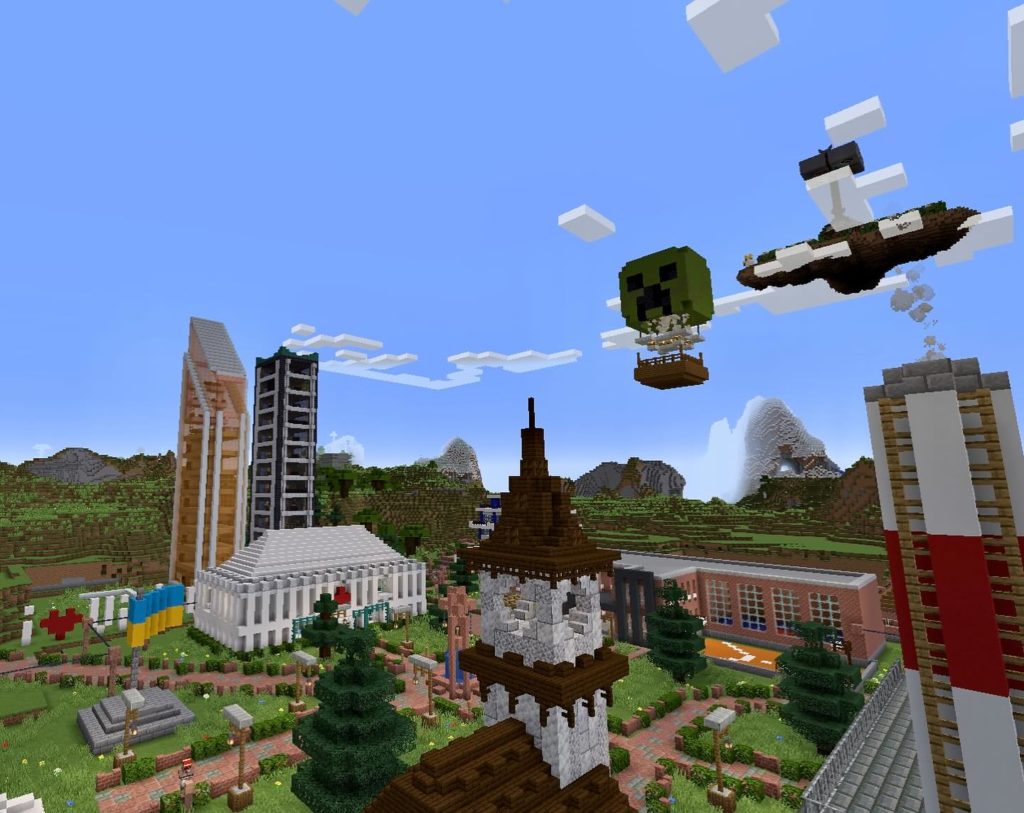
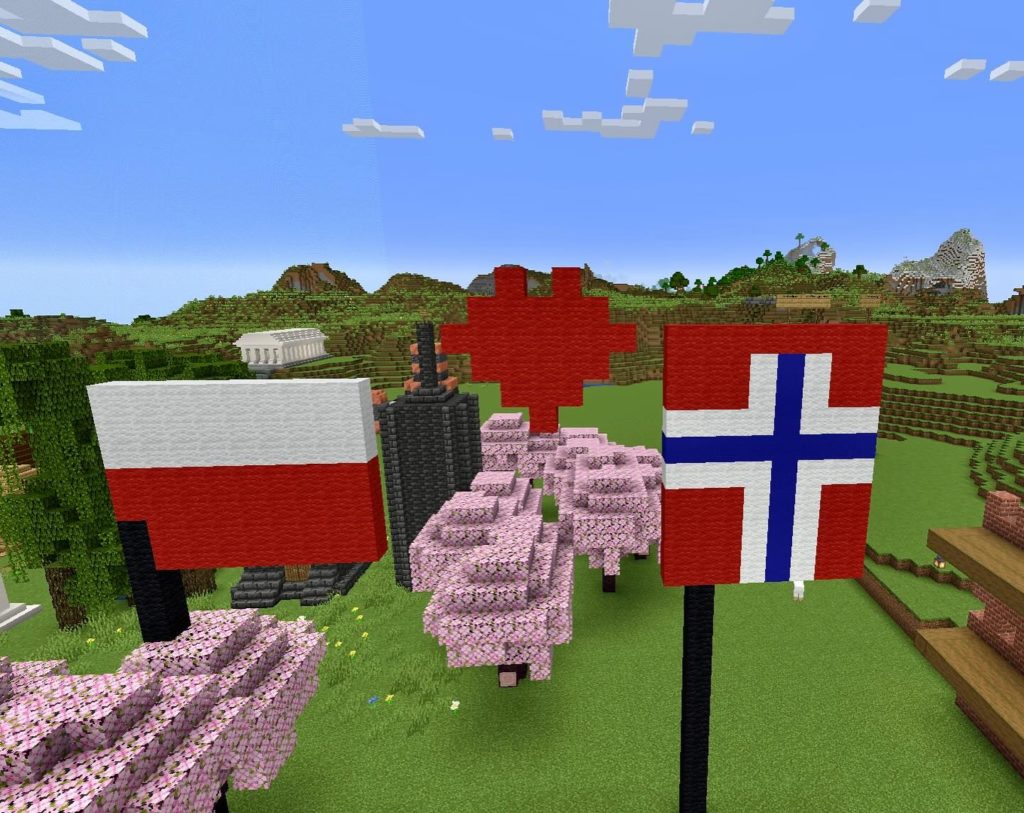
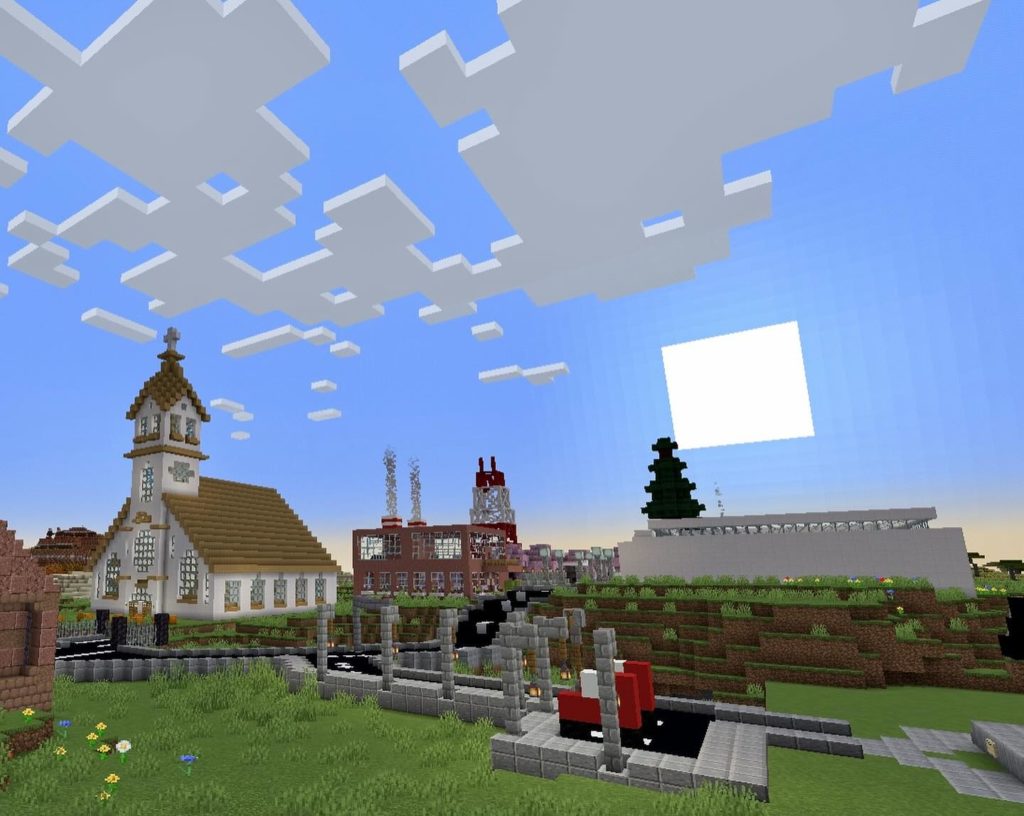
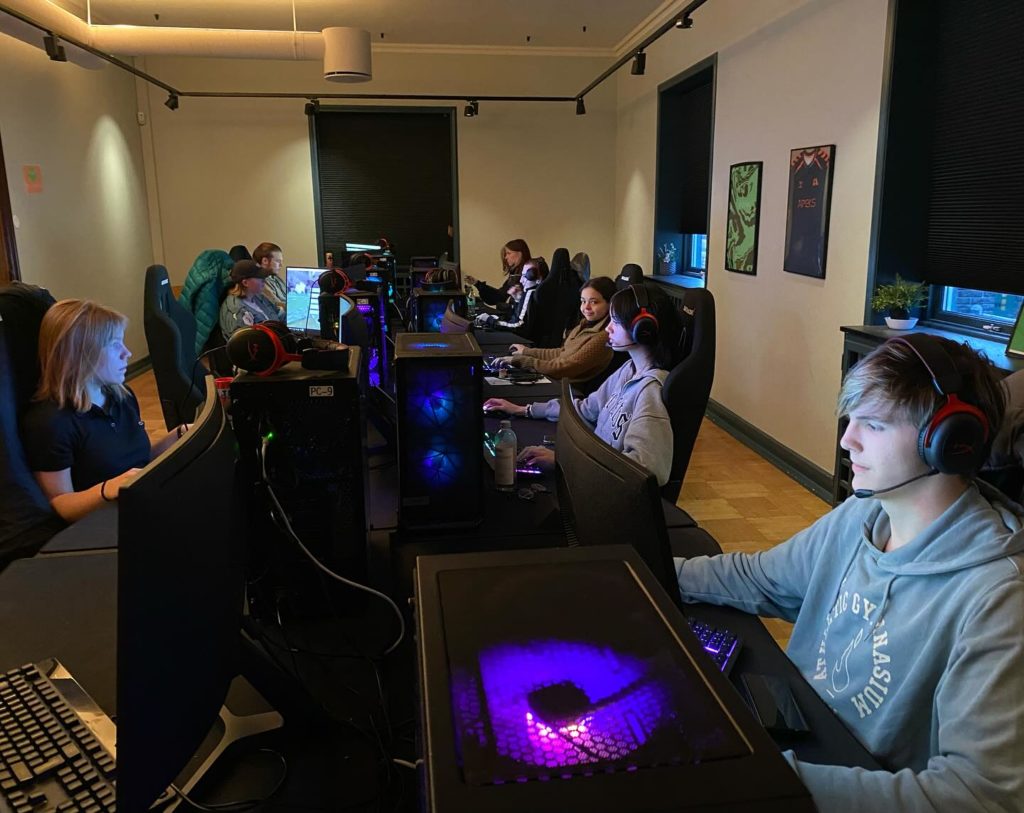
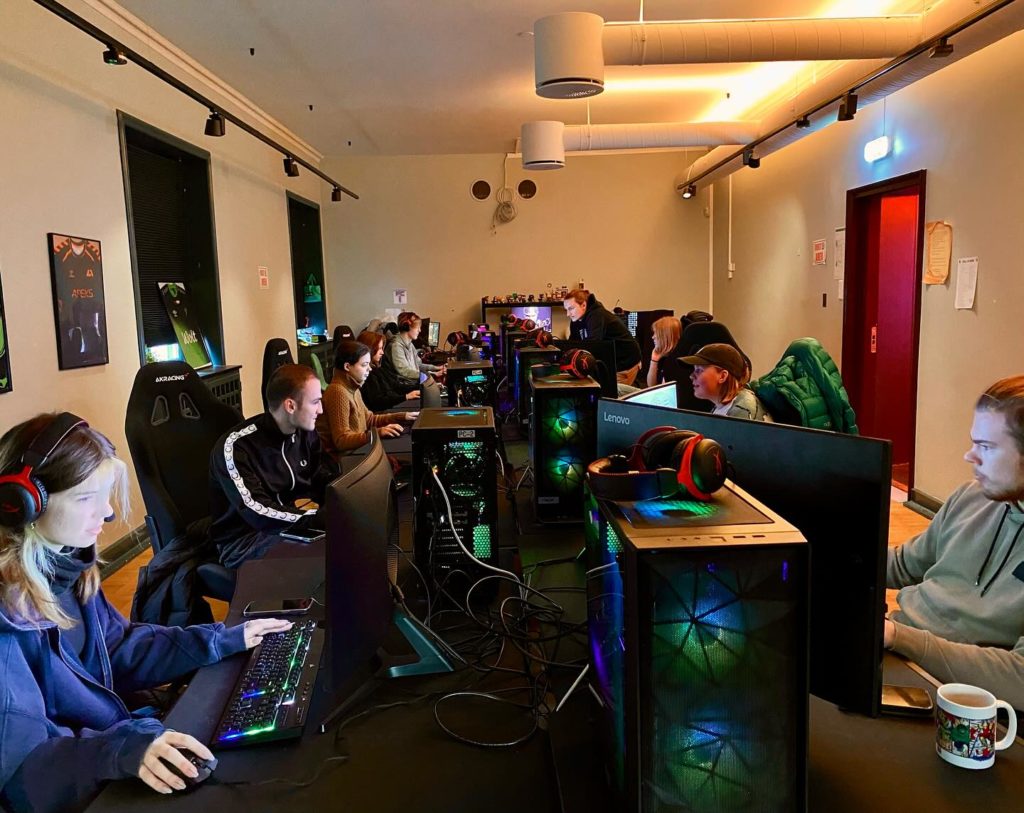
However, the players all shared the same values of creating beautiful environments where people can meet. In between it all, there was a myriad of houses, roads, factories, basketball courts, lookout towers, a beach – and even a fully functioning rollercoaster.
“This was our most important, and perhaps coolest, project so far, says our partner Kenneth Flage, who is the manager of Spillkultur. “The students were separated by geography, national borders and language barriers – but expressing oneself through Minecraft building is fortunately a universal language.”
Teachers received resources on democracy and citizenship that could be used in the classroom both before and after the event.
“It was amazing to see young people from all three countries express their wishes for their society through gaming! Participating in democracy is about being involved, having opinions, and shaping the future we want. Giving young people a platform to be heard, whether it’s from a podium or through gaming, is an important piece in educating active citizens,” says Ida Berge, advisor at the Wergeland centre.
The online exchange event was called “A Tale of Three Cities,” and is the result of a cooperation betweeen the European Wergeland Centre, Spillkultur, Lublin municipality and Sempre a Frente.
It is financed by the EEA and Norway Grants, and is part of the “Youth for the City, City for the Youth” programme, which aims to strengthen young people’s resilience to handle crisis and reinforce their ability to participate in public life.